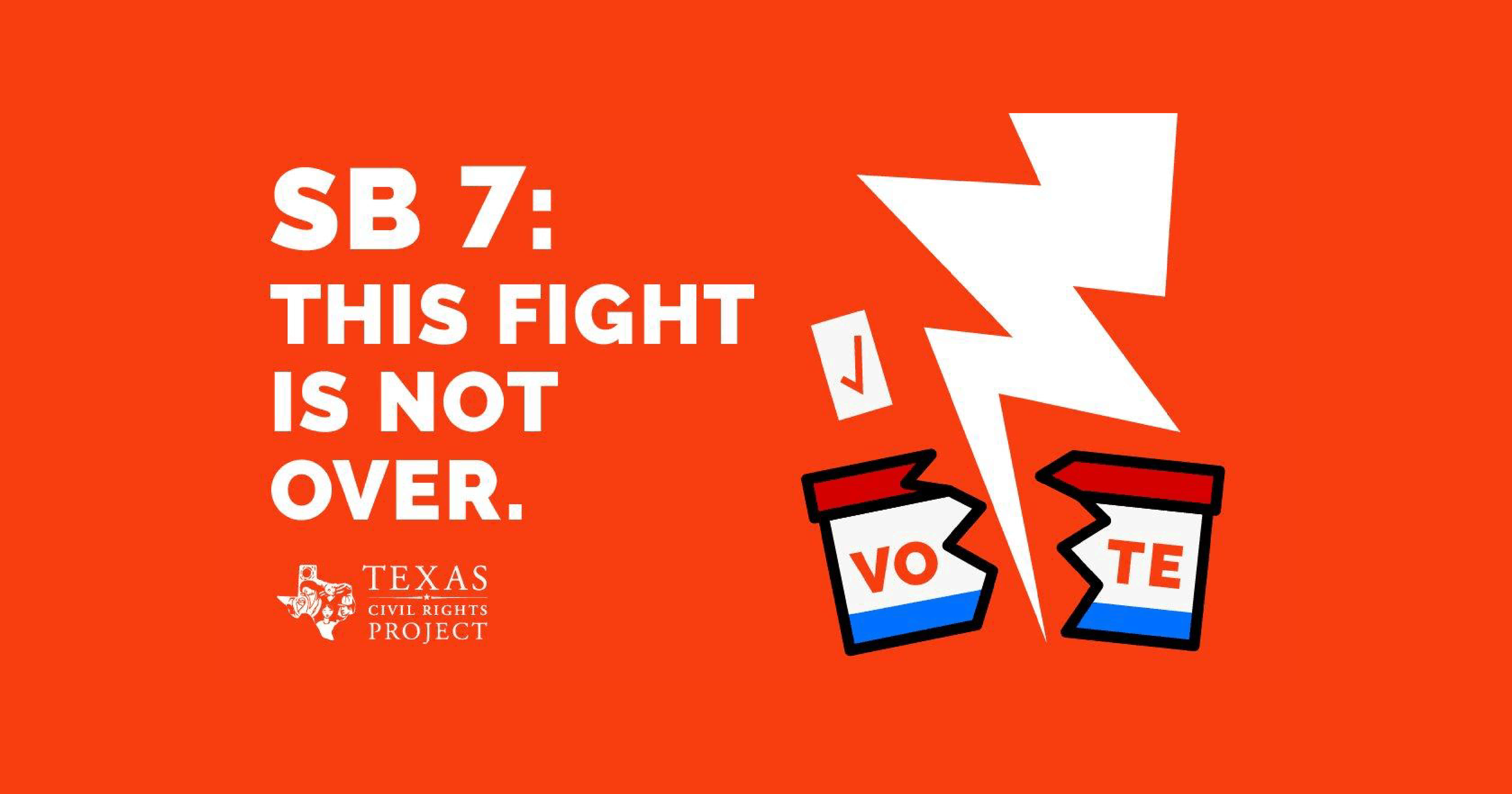When Governor Abbott declared voter suppression legislation to be an “emergency” priority item earlier this year, the smart money said that anti-voter bills were on a fast track to passage. Instead, the 87th Legislative Session ended in triumph for supporters of voting rights when state leadership’s priority voter suppression bill (SB7) went down in defeat on the last full working day before adjournment. Amidst a wave of voter suppression legislation across the country, the first victory against voter suppression legislation in 2021 happened here, in Texas.
The sponsors of SB7 released the long awaited final version of SB7 only mid-day Saturday, May 29, giving legislators and the public only a few hours to review the text before it came to a final vote. What they found was alarming. The bill had roughly doubled in size while written behind in closed doors, and now contained both dangerous provisions that had been removed in prior versions (such as a ban on extended hours and drive through voting) and also new provisions that seemingly materialized out of nowhere (such as prohibiting Sunday morning voting and a new judicial process to overturn the results of an election).
Voting rights supporters in the Texas House and Senate pulled out all the stops to kill this atrocious bill. At the end, brave lawmakers pulled out the last — and decisive — tool in their toolbox: breaking quorum and denying the chamber the 100 members it needs to function. The House had no choice but to adjourn on the last day that bills could be taken up, thereby killing SB7 for the rest of the regular session.
The fallout has come fast. SB7’s sponsors quickly descended into a nasty round of infighting, finger pointing, and mutual insults regarding their defeat. The backlash against its newest provisions gathered force, leading one of its sponsors to absurdly claim that a ban on early voting before 1pm on Sundays (which would have devastated Souls to the Polls programs popular with Black churches) was actually a “typo.” SB7’s collapse has sent a jolt of renewed energy into efforts to pass federal voting rights legislation. And victory over SB7 has given hope to progressives in other states that they too can prevail against voter suppression legislation advancing elsewhere.
How did this victory happen? Quite simply, an enormous coalition of Texans united against voter suppression and worked relentlessly to defeat SB7 and its associated bills: rural and urban Texans, residents of red and blue counties, the young and elderly, white Texans and people of color, voters with disabilities, and working and low income Texans among others. Grassroots organizers brought the stories of everyday Texans into legislative hearings. Policy and legal analysts (like those of us at TCRP) created fast, in depth analyses of constantly changing legislation. Legislators deployed their entire arsenal of legislative tactics to throw roadblocks in front of the bill. And prominent members of the business and faith communities used their platforms to bring attention to the bills.
In retaliation, Governor Abbott has threatened to defund the Legislature and promised to call members back for a special session. The current conventional wisdom is that “they will pass some voter suppression bill” in a special session.
But there are good reasons to be skeptical of that narrative. First, pundits confidently predicted the same of the regular session — and they were all proven wrong. Second, we can expect opposition to voter suppression bills to be even fiercer in a special session. Many people could not come to the Capitol to advocate against the bills during the regular session because of the pandemic, a barrier to advocacy that dissipates with each day as the coronavirus ebbs and vaccines are more widely distributed. Opposition will continue to grow over time as more people learn what was in the final version of SB7. And a special session focused on voter suppression will shine the national spotlight on the struggle for democracy in Texas even more directly than during the regular session.
We beat the odds and lived to fight another day. This battle may be over, but the war over the future of democracy in Texas is just beginning.
James Slattery is a Senior Staff Attorney with the Voting Rights Program at the Texas Civil Rights Project.




